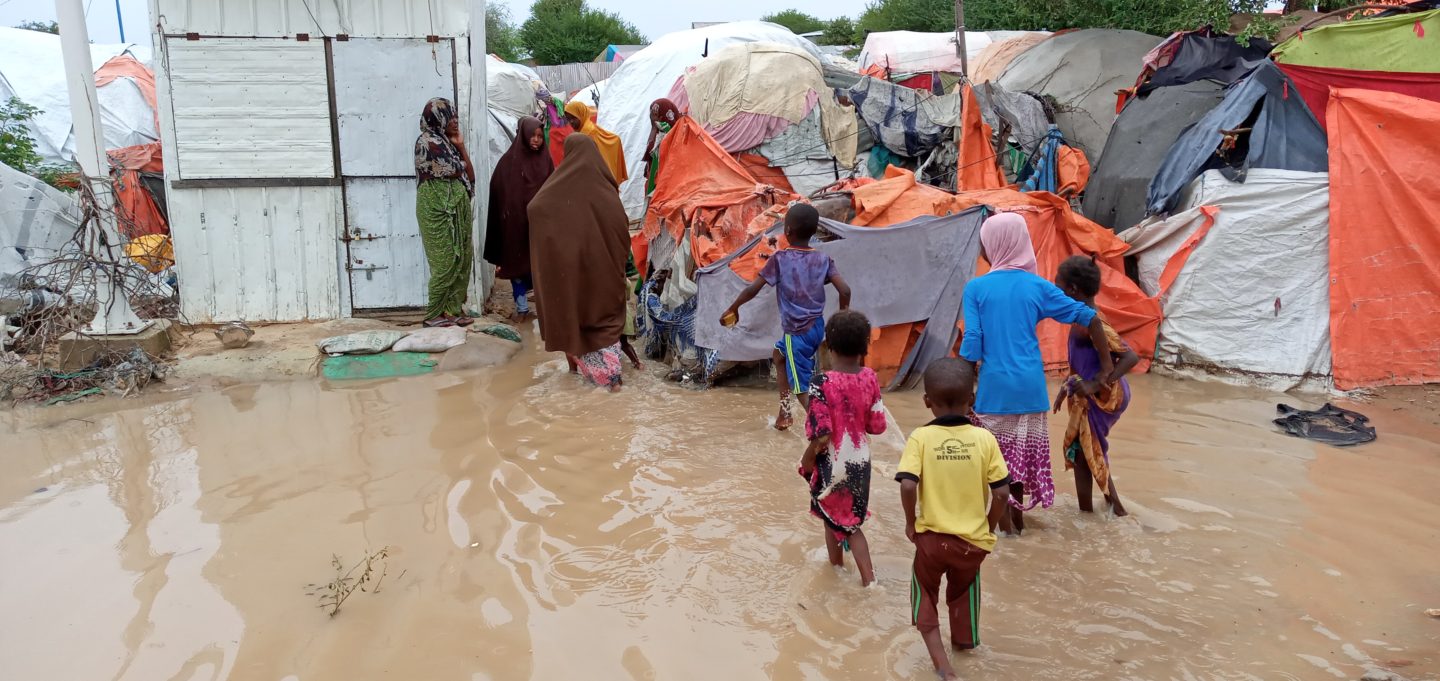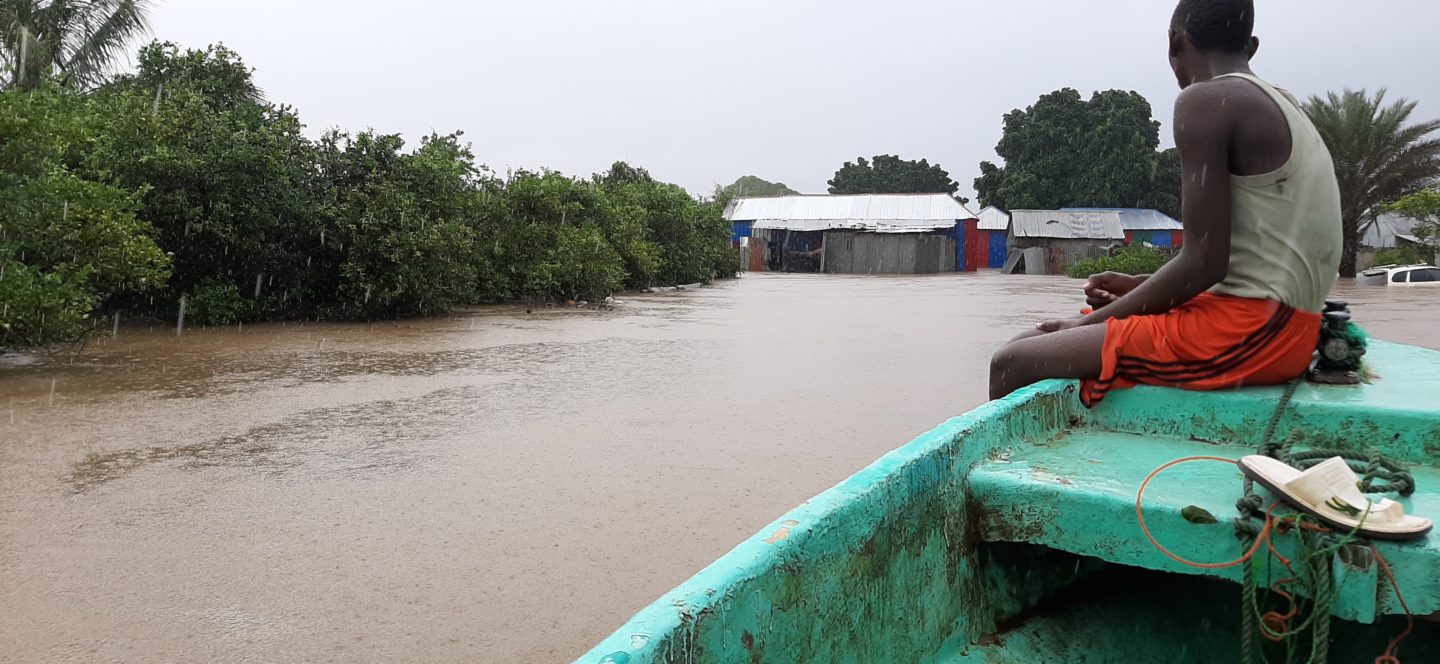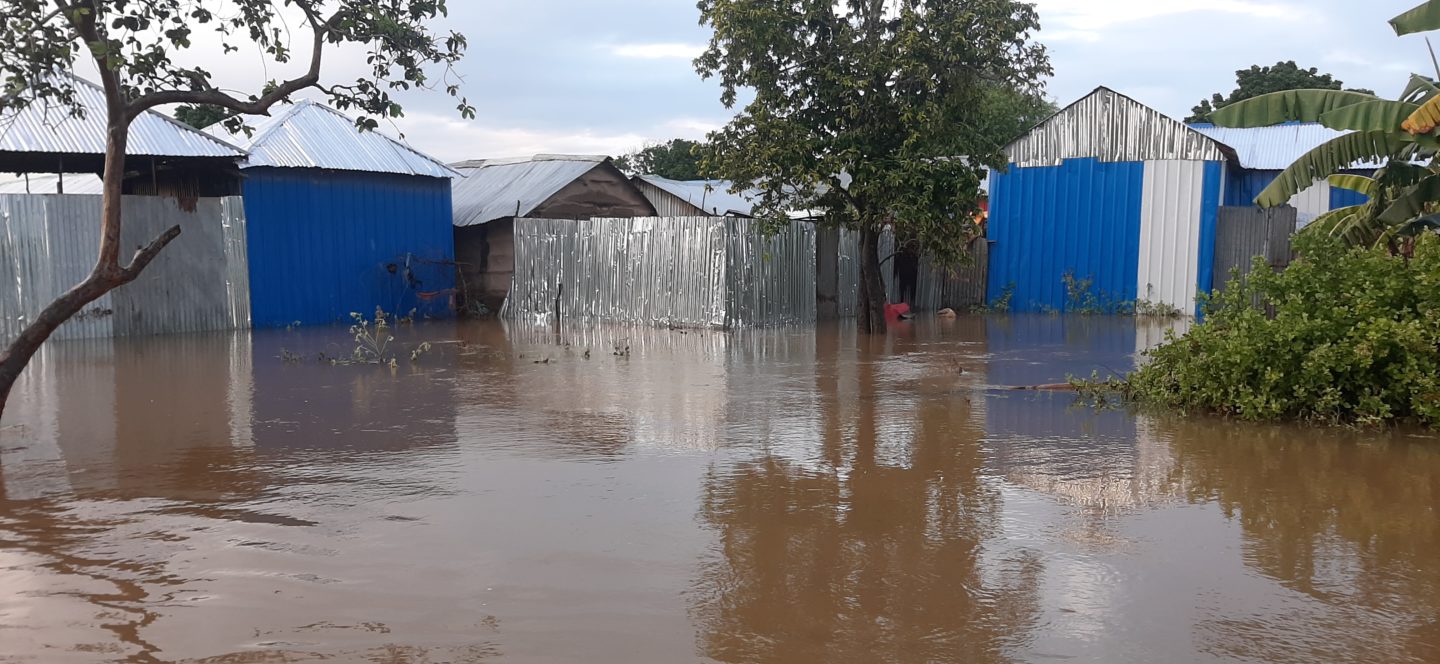Stories from Somalia
Displaced Families in Somalia Now Hit by Floods
“I have never seen something like this the whole of my life,” laments 65-year-old Marian.* Marian lives in a camp for displaced people in Mogadishu, the capital of Somalia. She has lived in the camp since 2016 when she and her family fled war in a neighbouring province. She shares a two-room house with her daughter and six grandchildren aged between three and 10 years.
“It was just before 3am. This is the time when there is the call for prayer. The camp houses are near each other, and I could hear people talking — and then a lot of commotion. No one was spared. Mothers were yelling and calling out for help.”

Marian gathered her courage. Her house was full of water; dishes, clothes and jerry cans were floating. She hurriedly woke up her daughter and grandchildren. Luckily, the neighbours had organized all the men to come and rescue children and women, leading them to higher ground. “We are already displaced from our original home and we didn’t have anywhere to go,” she said.
Marian is among the more than a half million people affected by floods in Somalia; nearly all of whom were already displaced. Heavy “Deyr” seasonal rains started in early September in parts of Somalia and the Ethiopian Highlands, resulting in flooding across three states. Farmland, infrastructure, and roads have been destroyed in some of the worst-hit areas, and at least 17 deaths have been reported.

While continuing with our ongoing response to the protracted crisis in Somalia, Medair works with local partners, national and local authorities to scale up flood response in affected areas, where those most impacted are the already vulnerable displaced people.
Medair has provided health and nutrition services, and water and sanitation (WASH) to flood affected families in two districts. To date, Medair has supported more than 10,000 beneficiaries with emergency WASH services including, cholera prevention, water treatment chemicals, emergency hygiene kits, and hygiene promotion information. More than 1,000 families received plastic sheets for emergency shelter.
A mobile team provided medical consultations and treatment for children with severe acute malnutrition. Working with community health volunteers, Medair promoted awareness of how to prevent water-borne diseases including cholera, and when to seek health care. Oral rehydration salts and zinc tablets were issued to these health promoters who were trained to screen and treat symptoms before referring patients in need of care to health facilities.

“We lost everything: from food to clothes and belongings, but, Alhamdulilahi**, we are all alive! God is great,” Marian said. She and her family received an emergency distribution of plastic sheeting for shelter, soap and other hygiene supplies, and jerry cans and aquatabs for treating and storing water.
[1] FSNAU Food security and Nutrition Quarterly briefs, 2019 Deyr season early warning 27th Dec 2019
*Name changed to protect identity
** Arabic for “Praise be to God!”
